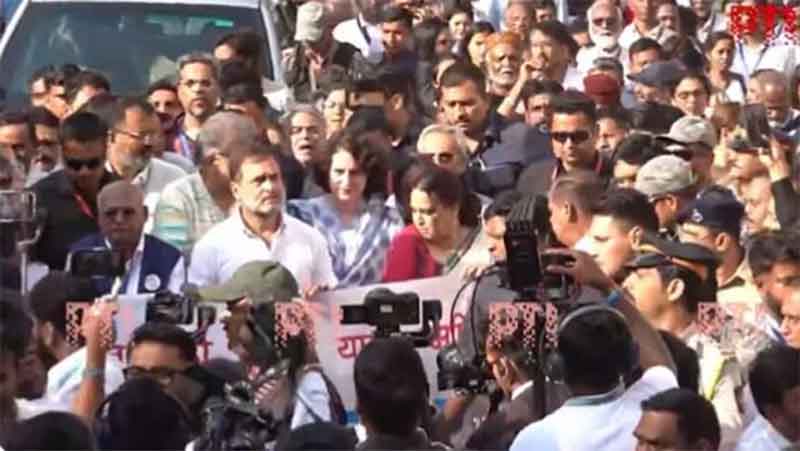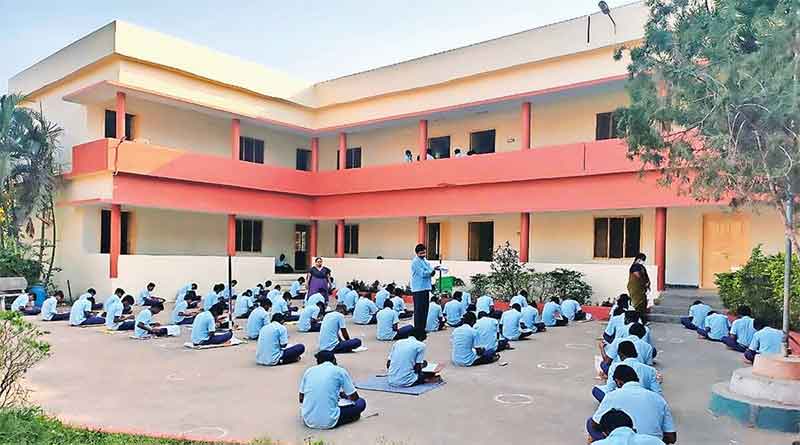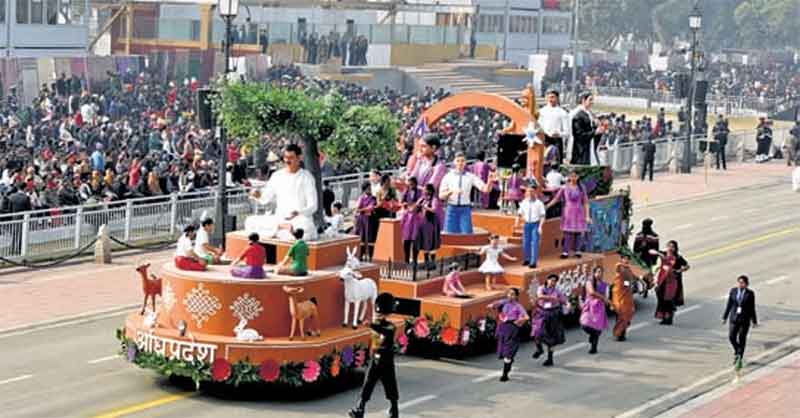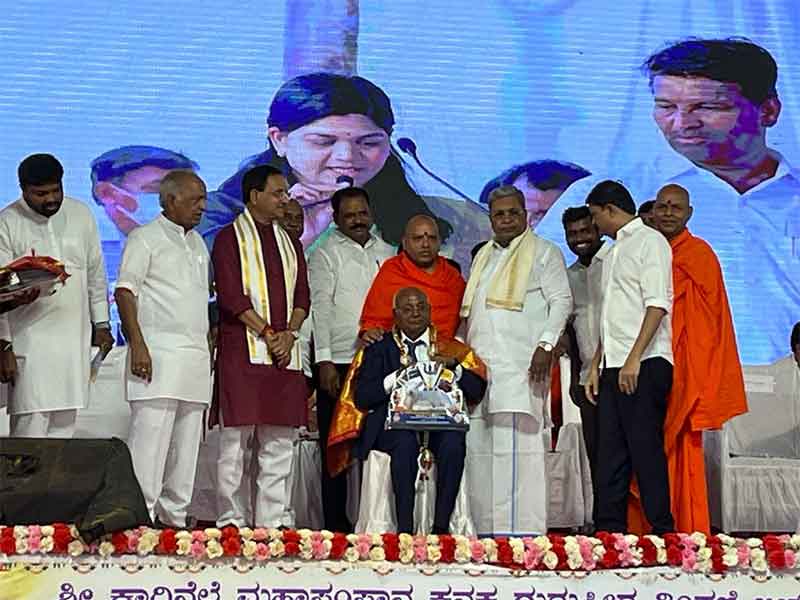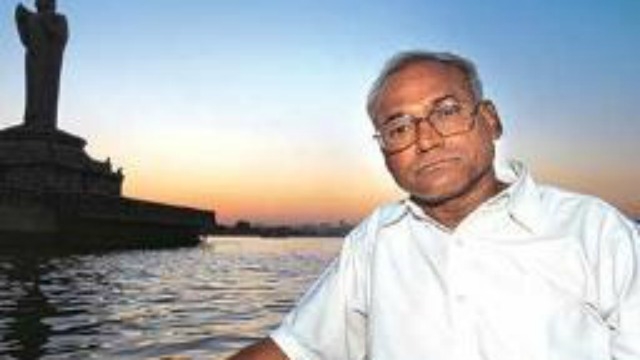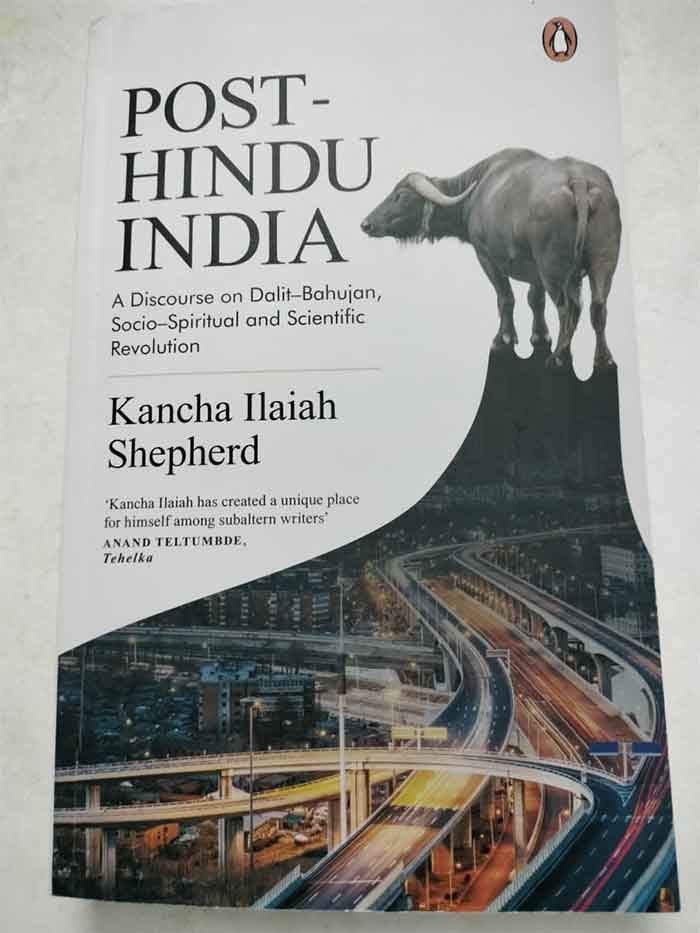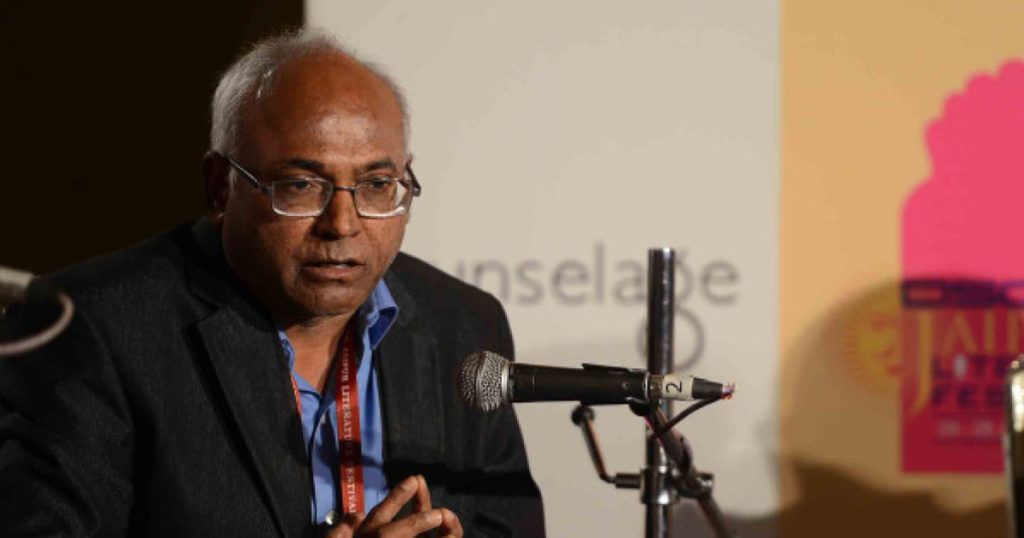
From Devulapally Venkateswara Rao group one Suryaprakash and Krishna have been writing very unreadable document type of writeups against me. They have been trying to spread lies as information, rubbish as Marxist knowledge.
One major unverified lie that they are spreading is that I did not write the first booklet on caste and Marxism in the history of Indian communist parties and groups in Telugu entitles, Kulanirmulana: Voka Marxist Dhukpadham (Annihilation of Caste: A Marxist Approach). But it was Usaa Barber who wrote and I claimed as if I wrote and published in my name. Such a simple and straight lie cannot destroy my image as I am a known writer in India and the world over. They should know how to verify facts, a primary methodological tool of Marxism, leave alone empiricism that came much later, which is a capitalist method of writing.
The Hyderabad Book Trust first published this booklet for general readers in the year 2002 with my signed introduction on 8 March. The last para of the introduction says “ when the draft was discussed in a meeting U.Sambashiva Rao, Ravimaruth and K.J.Rama Rao have made useful suggestions”. The draft was written in 1986-87 and it was discussed in a meeting at Machilipatnam, organised with the help of Amar, who was also expelled from the party along with Usaa and others.
Usaa wrote another document called Agenda Pakkakupetti-Errajenda Munduku Podu ( Setting aside Agenda the Red Flag Cannot March Forward). They should have grasped the difference of the style of writing of mine and Usaa.
When Kulanirmulana: Voka Marxist Drukpadham was published in 2002 Usaa Barber was editor of Edureetha and I was not part of that work. After both of us discussed I wrote an introduction and gave it for popular publication for a larger debate. By then Why I am Not Hindu book was published in Telugu and my Ph.D Thesis Gauthama Buddha’s Political Philosophy was also published with a title God As Political Philosopher in English. I had to do my Ph.D on Buddha’s Political Thought because the Nagireddy Group was not willing to open up a major discussion on ancient and medieval opposite schools of thought. I was of the strong opinion that Buddhism was a continuation of Charvaka’s materialist school and Brahminism which included Vedas, Epics and Upanishads, Kautilya’s Arthashastra and Manu’s Dharmashastra were anti-production and texts.
All the communist parties and groups’ programmatic documents would start only with the East India Company coming to India–what is then known as the beginning of colonialism. Their stupid understanding was that if British were not to come to establish the colonial rule, India would have grown as a stronger capitalist country than Europe. This was nonsense since the Indian markets were controlled by Banias, who were burying wealth underground from the rule of Guptas in 5th century AD, as I have shown in my book Post-Hindu India, in a chapter called Social Smugglers. This book was taken to Supreme Court by Arya Vyshyas in 2017. At that time all these fellows were siding with Vyshyas as part of their Dwija cultural roots.
No communist leader by 1980, whether Shudra or Brahmin, studied Buddha, Kautilya and Manu belonging to two opposite philosophical camps. I argued with that group that unless you understand ancient Indian caste-class struggles between Buddhism and Brahminism you cannot formulate a proper revolutionary strategy for India. I wrote a major essay in Frontier called the Kautilyan State, which that group opposed. The ideological content of the Telugu booklet is drawn from all my study of Indian history, Ambedkar and Mahatma Phule.
It was then I changed my land reforms thesis subject and started working on Buddha’s political thought. Only Brahmin historians like R.S Sharma, D.D.Kosambi and Debiprasad Chattopadhyaya were writing some so-called Marxist material on ancient India. But they were not looking at the production relations from the labour point of view. None of them thought that Buddha was a substantial political thinker. No Brahmin could have thought so given their childhood cultural roots. In fact, Indian history was written with full of lies. After Ambedkar’s Buddha and His Dhamma this was the first major book on Caste-Class and production in Buddha’s times. Ambedkar’s Annihilation of Caste framework was used to see the caste-class relations in India in this small Telugu booklet.
Nobody knows what is caste or ancestral occupational background of Suryanarayana and Krishna. Better they tell that so that the readers can know from which cultural background the lies are coming? There is a general opinion about Brahmin writing among the students and youth belonging to Shudra/OBC/Dalit/Adivasis all over India–in most universities– that if a writer is a Brahmin the truth part of it must be double-checked. Because from ancient days most writings of theirs were full of lies. The Shudras and Ati-Shudras have suffered enormously because of those lies as books, as Mahatma Phule repeatedly pointed out. That is the reason why while writing a book on Caste a Black writer Isabel Wilkerson titled her book Caste: The Lies That divide Us. This is so much true of Brahminic writing in India. These people must read the chapter Intellectual Goondas in my book Post-Hindu India.
Once I told my civil rights friend late K.Balagopal, which holds true even now. Revolution in India means Dalits/Shudras should write books article, and other material and the Dwijas–particularly Brahmins- must take to tilling land, harvesting crops and grazing cattle, which they have not done from the Rigvedic days till now. In an Indian revolution, historically stagnant roles must change.
If these people were to read my memoirs there is a mention of Vinayak Kulkarni, a Brahmin from Maharashtra settled in Hyderabad. He was responsible for my taking up OPDR (Organization For the Protection of Democratic Rights) work. He was my classmate in M.A. He is the only honest Brahmin revolutionary I have worked with. He is still working among the tribals of Dong-Gujarat. He lived in Bombay slums eating every cheap food available. Beef, Pork, chicken mutton were part our regular food when we were together. At that time he was theoretically soundest of all of us.
Then I worked with K.J.Rama Rao a Brahmin from Vijayawada but works and lives in Hyderabad, the best cook of pork and beef I have ever met. The question is how much debrahmanized a communist is. What are the methods and measures of debrahmanization, we still need to work out. But in my view they must change their food culture; they must take to physical labour in the fields but not lead parties and organizations and not write books, though they can read and write. That is part of that change. There is a need for a cultural revolution among communist ranks now. As of now they took the country backward. West Bengal is a good example, which is under the Brahminic CPI (M) rule for 34 years. These people, who claim that they worked among the masses but do not know what is a Shudra category in Indian society. Tarimela Nagi reddy was a Shudra and his ancestry came from the slaves of Brahmins.
Ussa was a courier of DVR for some time, as he himself told, He only told me about his food habits and his conservatism and how much Usaa struggled to supply them ghee and so on. I have not found a single para which is creative in DVR’s writings. The RSS vegetarianism and DVR’s vegetarianism and uncreative writing are part of the package. Let them read at least one chapter in my Why I am Not a Hindu called The Childhood Formations. It is here–in their childhood formation– that DVR, Namboodripad, Ranadive, Dange, Sitaram Yechri’s un- Marxist, if not anti-Marxist, cultural roots are.
This so called DV group, which does not exist even in two Telugu states, where Usaa Barber exists in every corner, is trying to spread lies about my writing as the RSS/ABVP tried to do when I was in Osmania University. They used to spread rumours that I cannot write the English that gets written in my books, as I studied in a small village school in Telugu medium. My books are written by a Christian Team sitting in Hong Kong. Once I had to tell some of the ABVP activists, to call their Arun Shourie–at that time he was their hero– and ask him to take dictation from me. I told them their English comes from Brahma’s Sanskrit whereas my English comes from my goddess Pochamma.
I am at least happy that Usaa Barber wrote for me not a Usaa Brahmin. I hope they stop writing cheap lies instead of something worth reading.
Kancha Ilaiah Shepherd is political theorist, social activist and author
SIGN UP FOR COUNTERCURRENTS DAILY NEWSLETTER

